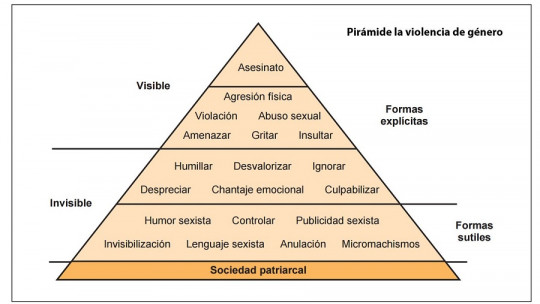
There is a lot of talk about success, but little about personal self-realization. Abraham Maslow already said it when in 1943, he created his theory of human motivation represented as a pyramid of needs. From the most basic (survival), to the highest such as self-realization.
After the need for self-esteem, self-recognition and recognition from others, we need to self-actualize. Give meaning to the actions we take. Self-realization is the last scale of the pyramid. It is the motivation for growth, the “need to be”
The importance of not confusing self-esteem and narcissism
Until now it is “fashionable” to have self-esteem, but it has not been said how to do it. In the US, there was a movement to promote self-esteem, but it was not clear how to do it. This increased the percentage of people with narcissistic traits. We are favoring individualism without empathy instead of self-love taking others into account.
However, in our country, we come from two opposite and non-integrated models of parenting. The authoritarian, where you have to be tough, strong, minimize or hide emotions and repress them. Promoting self-sufficiency. And the overprotective, which enhances emotional dependence, obedience, putting oneself in the background and loving one’s neighbor above one’s love for oneself. People can have difficulties identifying what healthy self-esteem is.
The narcissist has an idealized image of himself He is egocentric, he does not empathize. It only does so in the case of negative reciprocity, that is, when it involves obtaining a benefit at the expense of the other party.
When we are asked to describe our ideal partner, we probably say traits that narcissists may have: self-confident, extroverted, who fight for what they want, who have many interests or hobbies… It would be more appropriate to ask us. How does that person make us feel? Instead of focusing on qualities, notice how he makes you feel. What are your emotions like when you are with someone? Are you calm or calm? Or on the contrary, are you alert, do you feel bad or defensive?
The narcissist looks for followers. If we only look for people to admire, listen to or focus on, we will probably come across many. They look for excessively empathetic people Empathy is a quality, but like all personality traits, it must be kept balanced. If the person always puts others before themselves, their self-esteem will decrease, and they will not feel that they are taken into account. If, on the other hand, you give yourself excessive importance and make obvious what others need, you are guilty of egocentrism. There are people who pay homage to themselves. So, as Aristotle said “In medio Virtus”. Virtue is in balance, neither in excess nor in deficiency.
What really is good self-esteem?
Nowadays empowerment and good self-esteem are confused with a defensive, haughty, egoic attitude When a person feels good about themselves, it is very natural. He’s not bragging. When there is self-esteem there is balanced empathy.
Self-esteem is an “I-Thou”. If I am a “yo-yo”, I am going to look for people to admire me, to follow me, to deify me. I am going to have an inflated self-esteem, in short, false, because the moment I am criticized, I am going to get angry, or I am going to minimize the other person. When I am a “you-you”, then I will act like a martyr, always sacrificing for others, and I will feel that I am not taken into account, that I am not considered, that I am not important.
When self-esteem is balanced there is an “I-Thou” I matter just as much as you. We are both important. There are no power or unequal relationships.
Establishing healthy relationships
When we bond with someone, whether as a couple, friendship or another role, we have to see how we do it. If our attachment is anxious, we will deify our partner or others. We are going to consider ourselves less than the other and we are going to tend to blame them for not giving us what we need. Ask yourself: do you know yourself and what you need and want? Aren’t you holding the other person responsible for how you feel? Do you even know how to be private? Or when you are private do you put yourself in the background?
We must not only focus on what happens to us with others, but also on seeing how we connect What roles we follow. If we associate ourselves with narcissists, it is because we have the role of followers, empathetic, focused on others. You have to break with that.
And if we are the ones who behave from a defensive, egoic posture, putting everything that is ours above the rest, let us observe that, although at first they follow us or admire us, later they get tired of us. The other is not an extension of you, he has his own identity. When there is a balanced self-esteem, as said in Transactional Analysis, a humanistic theory of personality and human relationships, We have the existential position of: “I am fine and you are fine.” I accept myself and I accept you, even if you don’t think, feel or behave the same as me.
When there is narcissism, “I am good and you are bad.” I minimize you, because I have to stay above you. On the contrary, when self-esteem is low, “I am bad and you are good.” Your needs do matter, and mine don’t. And you? From what existential position do you connect?








